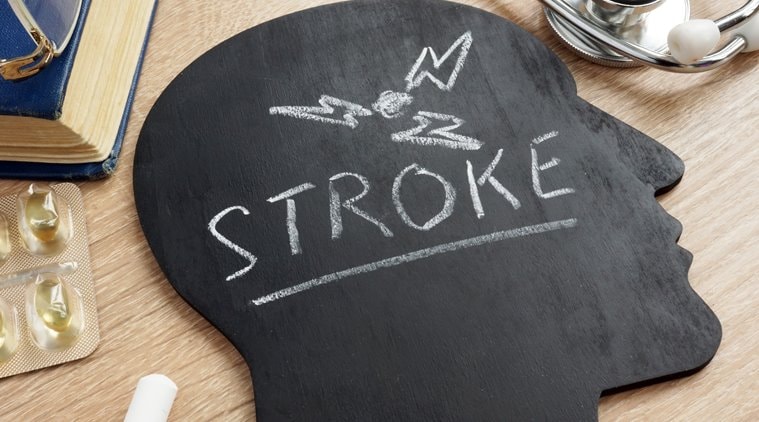World Health Organization says that stroke is the second biggest factor responsible for mortality, and its increase across the world, especially in India, is alarming, more so among the younger generations

Gone are the days when suffering a heart attack or stroke used to be restricted to the elderly and usually those with a history of cholesterol, smoking and diabetes. With the change in time and lifestyle, there has been a drastic shift in those likely to suffer from it. As young as 25-year-olds too have succumbed to sudden cardiac arrests which can lead to strokes, thanks to the sedentary modern day lifestyle, says Dr Advait Prakash Kulkarni, consultant – neurologist, Columbia Asia Hospital Sarjapur Road.
World Health Organization says that stroke is the second biggest factor responsible for mortality, and its increase across the world, especially in India, is alarming, more so amongst the younger generations. “Bengaluru itself has seen a 15-20 per cent rise in the number of stroke patients last year, and a significant percentage of those were the young IT crowd,” explains Dr Kulkarni.
To create awareness about the condition, every year World Stroke Day is observed on October 29. As per the World Stroke Organization, the theme for this year is ‘Cut Stroke in Half’ by creating public awareness and community participation.
Health experts highlight that while there are several modifiable, non-modifiable, genetic factors as well as blood-related factors that are responsible for a stroke attack, the highest blame can be put on one’s lifestyle that comes with advanced levels of stress.
A post shared by Dr. Amanda Lucero (@dramandalucero) on
Ischemic strokes, which are common and on the rise, occur when a blockage cuts off blood supply to the brain, while hemorrhagic strokes, which are less common, are caused when blood vessels burst in the brain.
These days many youngsters lead a hectic lifestyle where they work for at least 12-14 hours a day and then stay up late at night. Odd hours of sleeping or lack of sleep as well as consuming more processed foods instead of a nutrient-rich diet only pulls one away from a healthier life. Hypertension, lipid disorders, diabetes, tobacco use, smoking, obesity are all risk factors involved in making strokes common. “A lot of youngsters in the age group of 18-24 have at least one coronary heart disease risk factor such as obstructive sleep apnea, emotional stress, smoking that further exposes them to the risk of a blocked artery that can lead to stroke,” says Dr Kulkarni.
The probability of having three or more of these determinants has doubled the men and women hospitalised for acute ischemic strokes. As the stroke hospitalisations went down in numbers among the aged, it has shockingly shot up among youngsters. The hospitalisation ratio for women in the age group of 18 to 44 years has also increased. While stress was determined as one major cause for this, another factor likely to cause strokes in women was the use of contraceptives. Hormonal birth control methods have usually been correlated with a slight increase in the risk of blood clots; and since blood clots account for 87 per cent of all strokes, hence the derivation. However, views are disputed.
Stroke is not always of high intensity, sometimes it’s only numbness even without pain, headaches, migraines or constant hiccups if not resolved can become a symptom. If the underlying factors of stroke are not addressed after having one, then the chances of strokes further significantly rise.
Doctors often highlight the importance of taking timely medication when it comes to heart, and the need to have regular check-ups to stay aware of your body and not ignore any signs of a stroke. Time-loss is brain-loss when it comes to a stroke. Approximately two million brain cells die every minute a stroke is untreated, increasing the risk of disability or death.
Up to 15 per cent of strokes hit people who are below the age of 45 now and having a stroke when you’re young means many years of dealing with its potentially devastating effects during what should be your most productive years.
However, many health experts still believe that around 80 per cent of all heart diseases are preventable through healthier diet and lifestyle choices. Keeping yourself active and doing moderate exercises, avoiding junk food, smoking, excessive alcohol, and drugs as well as keeping track of your blood pressure, cholesterol and overall body health are some small choices that you can inculcate each day to ensure a healthier life for yourself and stay away from the risk of stroke.
Everyone must also remember the acronym FAST procedure to rapidly detect a stroke
*Face dropping: Check if one side of the face is drooping
*Arm weakness: Check if one of the arm weak or numb
*Speech disability: Has the speech slurred? Is the person unable to speak or understand
*Time to call emergency: Call emergency even if none of the above is mentioned
Source: Read Full Article
